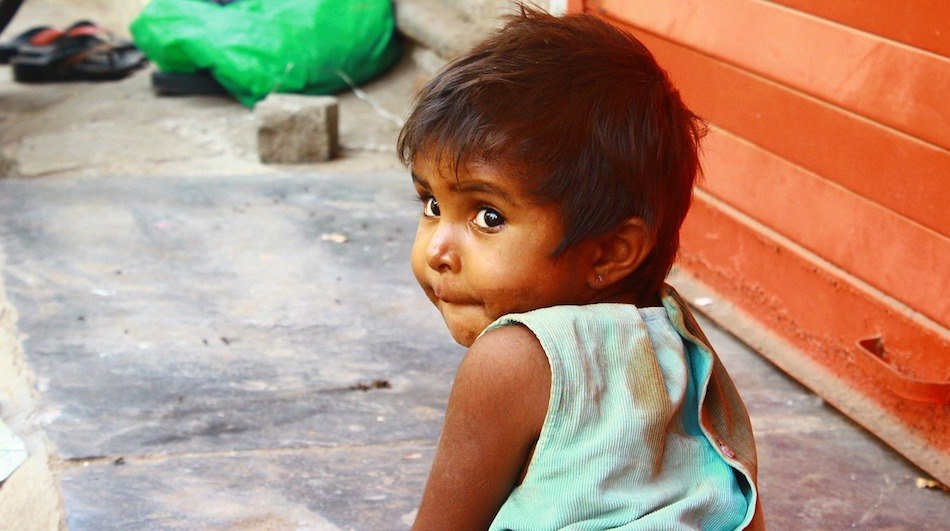
Photo credit: Pixabay.
We have been hearing stories after stories of the poor in India using WhatsApp, Facebook, and YouTube on their budget smartphones and about how the internet is transforming their lives. But India is still deficient in basic necessities like water, healthcare, electricity, infrastructure, or education – more than half of the country’s people have scarce access to these.
That’s why we need social startups that attempt to make an impact at the bottom of the pyramid and change these hard realities for the better. Products like Janitri, an affordable contraction-monitoring device that helps women during the intra-partum period of pregnancy; Taraltec Reactor, a machine that looks out for water-borne diseases like diarrhea, cholera, and typhoid; and Swachh, an automatic machine that makes sanitary napkins, can make a big difference to the lives of the poor.
Eight such products, made by startups in India, Indonesia, and Hong Kong, starred at the 2017 ASME Innovation Showcase (ISHOW) held last week in Bangalore. ISHOW is a global contest that aims to provide much-needed support for hardware innovators in the social impact sector. It gives US$500,000 in seed grants and other support to the final winners of the contest.
Hardware for social impact needs all the support it can get as investors would rather pump money into businesses that can scale up fast and give them quick returns. Building a hardware social impact startup is tougher than anything else out there. “The success of hardware pioneers depends on the successful blending of both business and technology skills. Those working closely with pioneer teams also need to bring the right combination of these skills, and this, unfortunately, is rare in the impact enterprise ecosystem,” according to an FSG report on the space.
Here are the eight Asian hardware innovators picked by ASME ISHOW:
Swachh
Only 12 percent of India’s 355 million women of reproductive age have access to modern menstrual hygiene products like sanitary napkins. Most of them use old rags, newspapers, or even husk to soak the blood flow. It is no wonder that 70 percent of women in India suffer from reproductive tract infections.
Saral Design Solutions is trying to improve this scenario with its machine called Swachh. It produces ultra-thin sanitary napkins. Swachh is one of the three winners of the Asia leg of the ISHOW.
Janitri
Janitri too has some scary statistics to share. Two million newborns and 250,000 women die during childbirth around the globe in a year. Over 80 percent of childbirths in India happen without the assistance of doctors. While it is important to track uterine contractions during childbirth, it is either monitored incorrectly or ignored 85 percent of the time.
Janitri founder Arun Agarwal, who holds a masters in biomedical science, spent years researching the space. He found that even at hospitals, most doctors were using their own wristwatches or mobile phones to measure contractions and fetal heart rate. That’s why he built a low cost, easy-to-use, portable uterine contractions monitoring device.
Raksh
More than half of the 5.9 million children under the age of 5 years who died in 2015 could have been saved with access to simple, affordable medical interventions, according to the World Health Organization (WHO). Pneumonia is one of the leading causes of their death, the risk of which is highest in the first 28 days of a child’s life.
Chennai-based engineer Vignesh Ravichandran built a US$25-35 pneumonia monitoring device – Raksh – that tracks a child’s respiration, heart rate, temperature, and blood oxygenation. It is a bluetooth-based monitor which can be worn over the child’s ear.
BrailleMe
Did you know that despite all the talk of progress and development, blind literacy rates have dropped from 50 percent to less than 10 percent over the past 30 years? That’s much worse in developing countries like India, where it is less than 2-3 percent, Surabhi Srivastava, co-founder of Innovision, told Tech in Asia.
Her startup built a machine – BrailleMe – that can be plugged into phones and computers to help the visually impaired access the internet and other digital content. It lets people write in braille and have it appear in digital text, as well as convert digital text into braille for them to read. It is also one of the three winners of the Asia leg of the ISHOW.
See: The digital revolution is leaving the blind behind, but she’s here to change that
Saans
Coeo Labs founders underwent a 6-month-long Affordable Innovation in MedTech program at InnAccel, a medical technology accelerator based in Bangalore, to learn about India-focused affordable medical devices before starting up. They, along with three clinicians and a biz grad, also worked with a tertiary care hospital to identify crucial gaps in the space, and then went about building medical devices for emergency, trauma, and critical care.
One of the products Coeo Labs built is Saans – a breathing support device for neonatals suffering from respiratory distress syndrome during resource-constrained settings, such as during transportation. Saans is the other winner of ISHOW.
Taraltec Reactor
The water crisis in India is so acute that even Bangalore, touted as the Silicon Valley of the country, is dying of thirst with the ground water table hitting almost zero. The city is buying drinking water from tankers, who give no guarantees whatsoever on its safety. Nearly 38 million people are affected annually by water borne diseases: 1.5 million children die of diarrhoea alone every year, according to reports.
Taraltec Reactor is a water disinfection device that kills microbes in water from bore wells, hand-pumps, and motorized water lines. This will mitigate water-borne diseases like diarrhoea, cholera, and typhoid, according to the company. It claims that the Taraltec Reactor needs no electricity or maintenance.
Mino
The world’s hungry for fish but the number of fish swimming in the seas has fallen by 80-90 percent of what it was a century ago. So, well-managed fisheries are key to tackling a looming food security crisis. Indonesia and the Philippines were among the first to take to aquaculture but the output fell lately due to environmental issues and necessary regulations that had to be enforced.
Mino from Indonesia developed what it calls micro-bubble technology to increase the aquaculture output substantially without harming the environment.
Livin Farms Hive
Hong Kong-based Katharina Unger’s Livin Farms Hive is a nifty desktop hive to grow edible insects. Before you say yikes, remember: insects are super food full of protein! Livin Farms Hive will help you grow 200-500 grams of them every day.

Mealworms. Photo credit: Livin Farms Hive.
These insects can eat up your vegetable scraps. So while you never know where the chicken or meat on your dinner table came from, you will know what your mealworms have been eating. The Hive will automatically collect insect excreta in another compartment, which you can remove and use as fertilizer for your plants! Talk about self-sustainability. And the worm farm sitting on a kitchen slab can provide much-needed protein in one’s diet.
Here’s another bit of news from the social impact space: Impact Guru, an Indian crowdfunding platform for individuals, not-for-profits, social enterprises, and corporates got into a partnership with GlobalGiving to raise money online for grassroots projects. This will help “Indian NGOs and social enterprises raising money on ImpactGuru offer tax benefits to international donors in the US and UK, when they donate towards social causes,” the company announced today.
This post These 8 hardware startups are tackling some of society’s biggest problems appeared first on Tech in Asia.
from Tech in Asia https://www.techinasia.com/8-hardware-startups-for-social-impact
via IFTTT
No comments:
Post a Comment